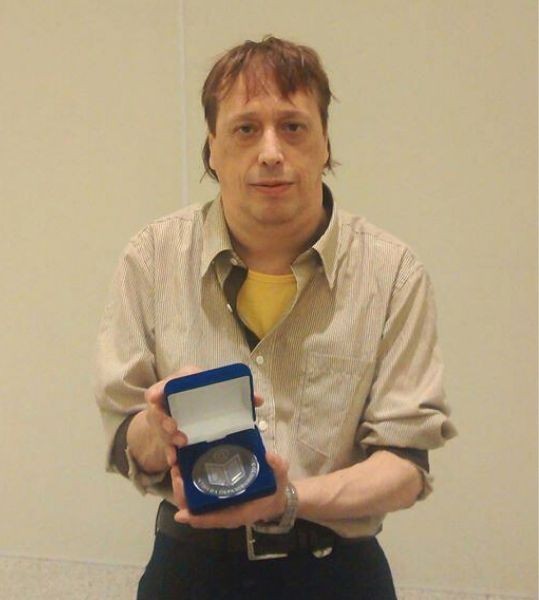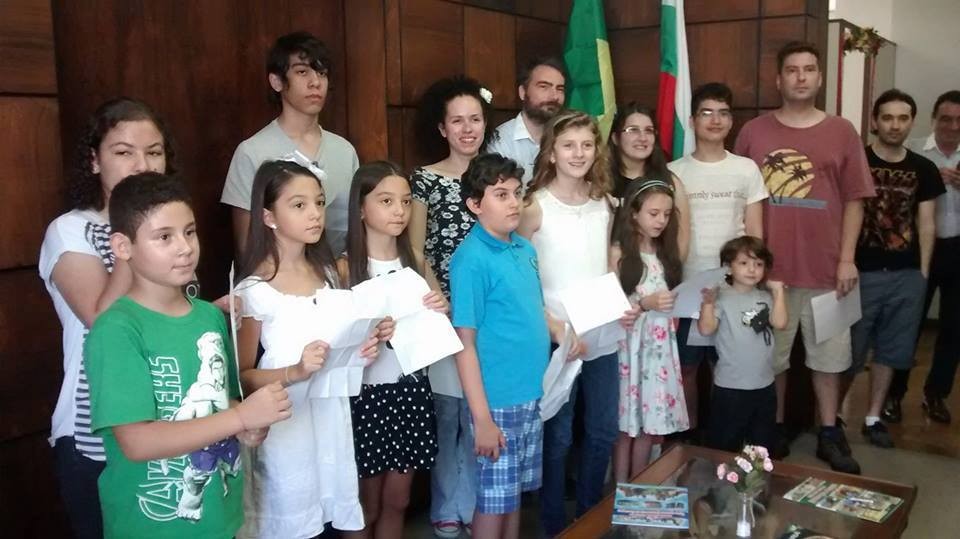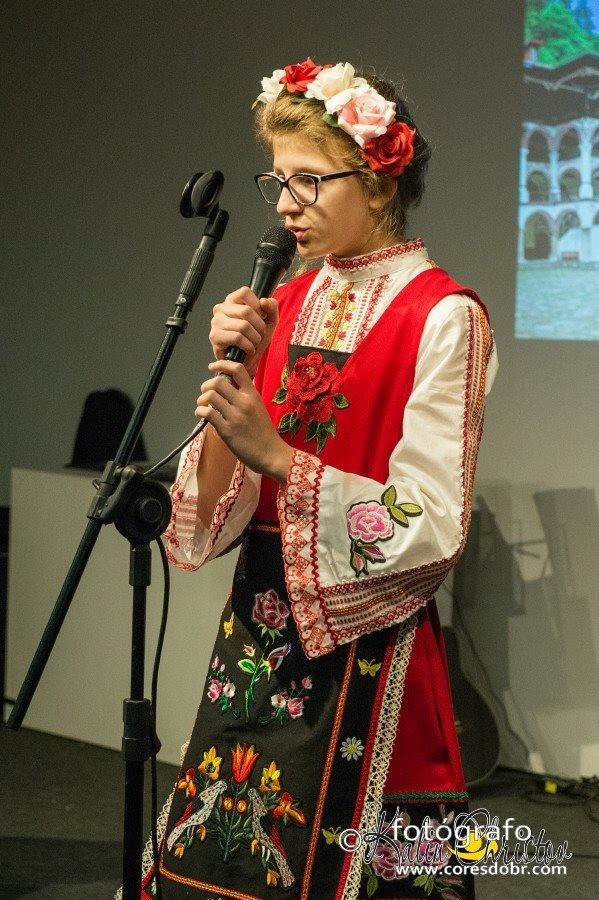Even though they are thousands of kilometres away from Bulgaria, our compatriots in distant Brazil keep alive the Bulgarian spirit there. 11 years ago, on the historic date of March 3rd, Bulgaria’s National Day of Liberation, the first Bulgarian Sunday school in all of South America was established in Sao Paulo. Originally a Bulgarian language course, in 2011 it was included in the National Program for Bulgarian schools abroad, and since 2015 it has been recognized as a school at the Bulgarian Embassy in Brazil and enjoys its unreserved support. Today, 65 students study there – by attending classes and also online which helps the school reach children with Bulgarian roots as far as the most remote corners of the Latin American country who want to study Bulgarian.
Among the highlights in the cultural program of the school are the dates May 11th and May 24th - the day of the Holy Brothers Cyril and Methodius in the old and new style. On May 11, 2018, under the auspices of the Bulgarian Ministry of Education,the initiative "Roses of Bulgaria" was held for the first time, in which all Bulgarian schools abroad dance, organizing other accompanying outdoor events.
 "With these events in the last two years, we have ignited even the interest of Brazilians in our holidays and the date May 11th has become the Day of Bulgaria in Sao Paulo. Bulgarians from all over Brazil come to our events to immerse themselves in an incredible atmosphere," says the founder of the Bulgarian school Mikhail Krastanov. The celebration is held at the Museum of Emigration.
"With these events in the last two years, we have ignited even the interest of Brazilians in our holidays and the date May 11th has become the Day of Bulgaria in Sao Paulo. Bulgarians from all over Brazil come to our events to immerse themselves in an incredible atmosphere," says the founder of the Bulgarian school Mikhail Krastanov. The celebration is held at the Museum of Emigration.
"Brazil is made up of different nationalities. This museum shows the entire history of emigration. Emigrants from different continents were once housed in this building and from there they were transported to the reed plantations. Among them were Bulgarians from the first Bulgarian wave of emigration in 1930. Today the museum is a wonderful place for attractions. At our first event there, including a concert, which filled a hall with over 200 seats, the director of the museum came to me and said: "I had never seen such a beautiful thing. Whenever you want, we are at your disposal." People from other nationalities joined the open-air traditional Bulgarian round dance and it triggered their interest in Bulgaria even more. That's the point," sums up Mikhail.
The complicated situation around the coronavirus in Brazil this year changed the plans for the holidays of our compatriots. But as Bulgarians who do not give up easily, they decide to hold the “Roses of Bulgaria" online.
"We have talented children. Some sing very beautifully, others recite poems well, others dance. We have small children - good musicians who perform musical pieces from home," said Mikhail. This is how a magnificent and emotionally saturated video was created, uploaded on Youtube, in which the main characters are the children of Bulgaria in distant Brazil.

However, what motivates these children to attend the Bulgarian school, spending one day from each of their weekends there?
 "My father is Bulgarian. I have been to Bulgaria three times. My grandparents, my cousins live in Sofia. I study Bulgarian so that I can talk to them, and also learn more about Bulgarian culture and history,"says 9-year-old Julia Hazarbasanova.
"My father is Bulgarian. I have been to Bulgaria three times. My grandparents, my cousins live in Sofia. I study Bulgarian so that I can talk to them, and also learn more about Bulgarian culture and history,"says 9-year-old Julia Hazarbasanova.
In response to my question about what sustains her love for Bulgaria thousands of kilometres away, another student from the school in Sao Paulo - 13-year-old Sofia Spasova Costa, says:
"Bulgaria is very important to me because my mother is Bulgarian. My cousins live in Sofia and I love being with them. Bulgaria represents for me a type of nature and climate that I can feel only there. I really like the seaside, especially Sozopol and Nessebar. Bulgaria is my second home."
The Sunday school educates mainly children from mixed marriages or of Bulgarian families sent to Brazil for work. Mihail Krastanov, Iglika Spasovska and Zornitsa Popovawho is responsible for the study of Bulgarian folklore and extracurricular activities work with them. Twice a month the children present what they have learned so far in open lessons.
Many of the children later return to Bulgaria. Their smooth and successful inclusion in the Bulgarian educational system is a testament to a work well-done bythe teachers in the Bulgarian Sunday school in Sao Paulo.
English version Rossitsa Petcova
Photos: courtesy of Mikhail Krastanov
Perperikon - the ancient Thracian city near Kardzhali, made it to the top 10 of the world's must-see sites, according to a ranking by the Guardian newspaper. The site is listed alongside Neolithic structures in Spain and France, ancient Roman baths..
This year, the traditional Christmas trip with the Rhodope Narrow Gauge Railway will take place on December 22, Kristian Vaklinov, founder and chairman of the Rhodope Narrow-Gauge Railway Association, told the BNR-Blagoevgrad. Santa Claus and Snow..
The zoo in Stara Zagora has new residents – three female collared peccaries and a male tufted capuchin named Lucho. The animals arrived from the Sofia Zoo under a breeding loan agreement.The practice of zoos exchanging animals for breeding purposes..
The village of Zmeyovo near the town of Stara Zagora is celebrating today, December 21, its traditional Festival of Pelin Wine. According to an..
Each piece evokes warmth and nostalgia because each is handmade and unique. The silvery reflections on the glass baubles take us back to childhood, when..
The making of knitted products is a traditional craft that deserves a revival and a new life, believes Alexandrina Pandurska, known for her numerous..

+359 2 9336 661
